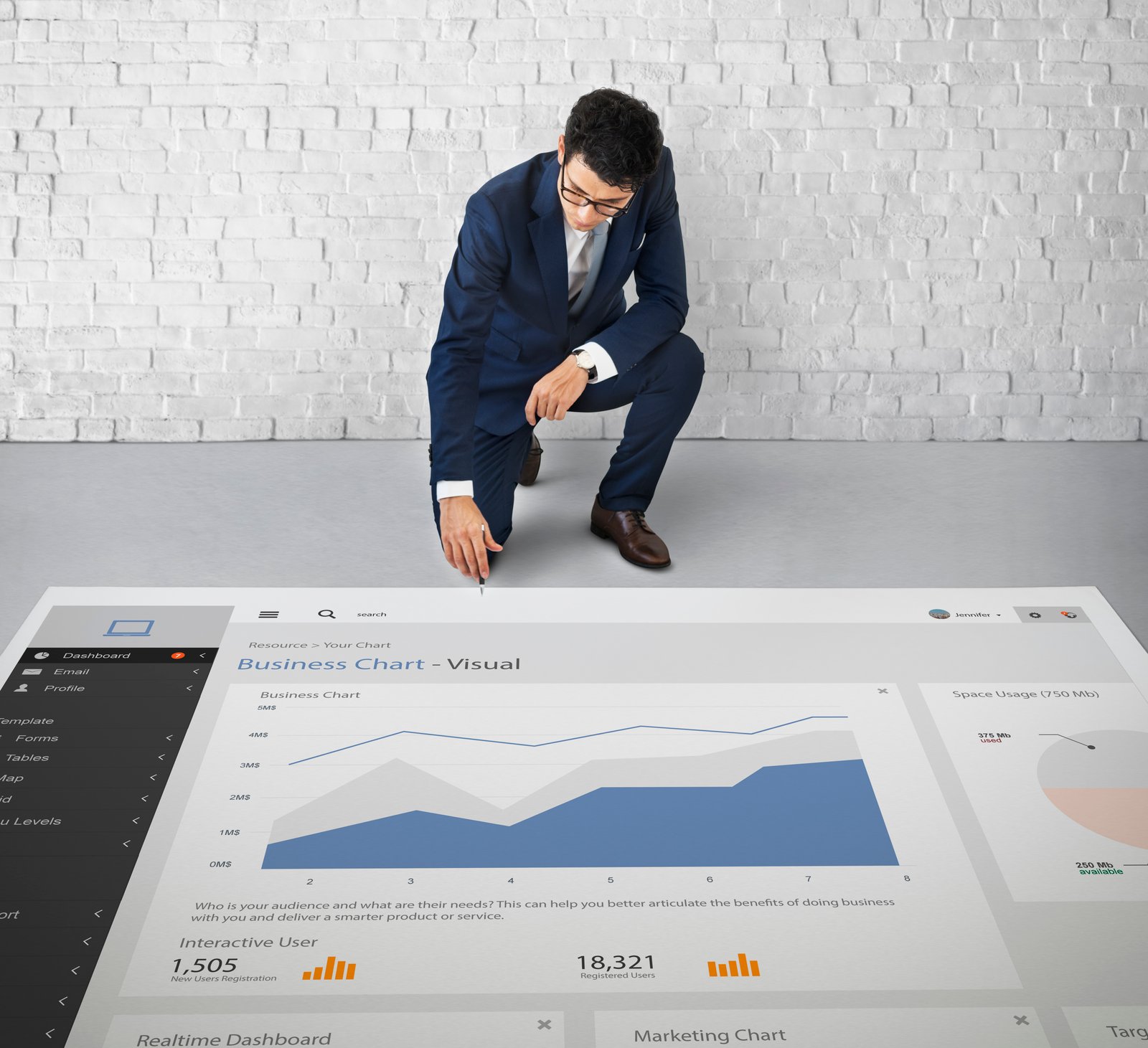
How to Check Your User Agent and Why It Matters for Online Security
What Is a User Agent?, On Desktop Browsers
Introduction
Imagine going into a shop and without having to ask the store clerk, she already recognizes your name, your address, and the things you are looking for. Creepy, right? This is what you get every whenever you visit the web, and one of the instruments that facilitate this is called your user agent.
The user agent is an insignificant yet powerful piece of text which tells websites about the is the operating system, device and web browser you're using. This is how websites can offer you mobile-friendly versions of their website on your mobile or fully-featured desktop experience when you use your computer. The problem is that although user agents can help websites run smoothly, they could be a source of sensitive data and make you more vulnerable to profiling, tracking or cyberattacks.
This guide will help learn what is a user agent what it is, how you can identify it, the reason it's crucial to protect your privacy online, and what you can do to control it to ensure your privacy. We'll dive into.
What Is a User Agent?
Simply put it's the name you give to an ID badge your browser wears each time it interacts with web sites. It's an element of the HTTP header, which is a data piece that is transmitted every time you access a web page. It gives information about the operating system, browser and the device type.
A user agent's string may appear like:
Mozilla/5.0 (Windows NT 10.0; Win64; x64) AppleWebKit/537.36 (KHTML, like Gecko) Chrome/112.0.0.0 Safari/537.36
Let's take this in the form of a breakdown:
- Mozilla/5.0 is a compatibility marker for systems older than Mozilla/5.0.
- Windows NT 10.0; Win64 and x64 indicate that the OS (Windows 10 64-bit).
- AppleWebKit/537.36: The engine for browsers (used in conjunction with Chrome as well as Safari).
- Chrome/112.0.0.0 Type of browser and the version.
- Safari/537.36: Another browser engine detail.
Users agents assist websites in optimizing their layout and functions according to your configuration. If, for instance, you're using an iPhone the site may modify its layout in order to suit the smaller size of your display.
User agents may provide excessive information, such as the date you're using your browser (a possibility of security threat) or an exact type of device that an attacker could take advantage of.
How to Check Your User Agent
The process of checking Your user's account is an easy process, but it varies a bit based on the browser you use and your device. This is how to check your user agent:
On Desktop Browsers
Google Chrome:
- Start Chrome, and then press Ctrl + Shift+ In (Windows) or press Cmd + Options + I (Mac) to launch Developer Tools.
- Select the Network tab, then reload the page.
- Select any request and you'll find the user agent's string within the HTTP headers.
Mozilla Firefox:
- Start Firefox, and type "about:support" into the address bar.
- Find your way to the "User Agent" section under "Application Basics."
Safari:
- You can enable the Develop menu through Safari Preferences > Advanced and selecting "Show Develop menu in menu bar."
- Utilize your Develop menu to examine the activity on your browser's network and the agent of the user will be shown.
On Mobile Browsers

Chrome (Android):
- Check out a user agent tool such as SeoToolsAI.org.
- The website will display your user's name immediately.
Safari (iOS):
- Launch Safari and then go to a program such as UserAgentString.com.
- Your user agent will show on the screen.
Online Tools
Websites such as WhatIsMyBrowser and UserAgentString.com can display the user's name with one mouse click. They also breakdown components of your agent to make it easier to comprehend.
What Is a Random User Agent?
A random user agent can be described as an application or setting that alters the string that your browser is sending to websites. This could be a randomly generated string or one that mimics the behavior of a particular device or web browser. The reasons you should to consider using one of them:
Benefits of Random User Agents
- Overcoming Restrictions: Some sites restrict access to specific web browsers or gadgets. An unidentified user agent could assist you in bypassing these restrictions.
- In addition, by constantly switching your user agent you can make it more difficult for websites to trace and identify you.
- Test Websites for Testing: Web developers utilize random user agents in order to simulate different browsers and devices for purpose of testing.
- Preventing Fingerprints: Many websites mix data points to create unique fingerprints that identify their users. An unidentified user agent can disrupt this process and adds another layer of security.
Tools for Generating Random User Agents
- Browser Extensions: Applications such as "Random User-Agent" or "User-Agent Switcher" permit you to create a random users' agent.
- scripts for advanced users Custom scripts may be created to run through the user agent to automate testing, or for increased security.
- The Anonymity-focused browsers such as Tor come with built-in tools that randomize user agents in order for maximum the privacy of users.
When to Use a Random User Agent
- Accessing content restricted to geo-restricted locations: Some platforms block access to certain content on the basis of the user's agent; randomizing could aid in bypassing these limitations.
- Research and Analysis: cybersecurity researchers or digital marketers Simulating various devices could offer insights into user experiences as well as weaknesses.
Why Does Your User Agent Matter for Online Security?
Although user agents are crucial for the web's functions, they can also present serious security threats. Here's how:
Risks of Exposing Your User Agent
- Tracking: Trackers and advertising may utilize your user agent to create a comprehensive account of your activity online.
- Attacks: Hackers may target certain vulnerabilities in your operating system or browser depending on the user agent you use.
- Phishing: Cybercriminals are able to create more convincing phishing schemes through the identification of your device and the type of browser you use.
How to Protect Yourself
- You can mask your user agent Make use of tools such as VPNs or browsers with privacy features to cover your user's agent.
- Keep it up to date: Update your operating system and browser current to reduce the risk of being vulnerable.
- Randomize Whenever Needed: Utilize random agents to gain protection from unauthorized access.
Practical Tips for Managing and Securing Your User Agent
Controlling your user agent efficiently will greatly improve the security and privacy of your internet. These are the specifics:
How to Change Your User Agent
-
Manually in Chrome:
- Open Developer Tools with the keys Ctrl, Shift and I (Windows) Or Cmd + Options + I (Mac).
- Click on"Network Connections" and click on the "Network Conditions" tab.
- Remove the checkmark "Use browser default" and pick or select a different user agent using the menu dropdown.
-
Using Extensions:
- Use a program such as "User-Agent Switcher" or "Random User-Agent" to change the user agent of your choice with just only a couple of steps.
- The extension can be configured to switch users' agents automatically on a regular basis to ensure protection from unauthorized access.
-
Adjusting Browser Settings:
- In Firefox, navigate to about:config and search for general.useragent.override. Modify or add a custom user agent string in this.
Testing Websites
Website administrators and developers can use different emulators for compatibility and efficiency on a range of browsers and devices. Tools such as BrowserStack or Google's built-in device emulator allows for an extensive test. The testing of different users will ensure that all users regardless of device are able to enjoy a smooth experience.

Pros and Cons of Modifying User Agents
- Pros:
- Improved privacy through masking the details of your device.
- The ability to circumvent some restrictions, or gain access to geo-blocked content.
- This is helpful for developers who want to test websites across multiple platforms.
- Cons:
- Some sites may restrict access when they discover irregular or fraudulent user agent.
- Inadequately randomized user agents may cause disruptions to the browsing behaviour.
Additional Tips for Security
- Combining a VPN with a VPN Utilizing a VPN in conjunction with a user agent that is random could significantly boost your security.
- Set up Anti-Tracking Tools: A lot of browsers, like Brave come with anti-tracking tools that work in conjunction with masking for users' agents.
- Make sure to regularly review your extensions Check that reputable designers develop the applications you utilize to manage your the user agent and won't violate your security.
FAQs About User Agents
Q: What happens if somebody knows about my username and password?
The answer is that they can draw specifics about your device as well as browser that could help in directing phishing campaigns or monitor your activities.
Q: Could a user agent create a completely anonymous?
A: No. Although it provides a level of security, pairing it with other tools such as VPNs is crucial for complete security.
Q: Do you think that random agent users safe to utilize?
The answer is generally yes, as in the case that you utilize reliable extension or tools.
Q: What are the reasons websites restrict certain users?
Certain websites block the user agent in order to stop bots from accessing their websites and outdated browsers or devices that might not work with the website.
Q: Can changing my user agent improve my browsing experience?
The answer is yes, specifically when you're using the wrong device or browser, and are uncompatible with specific sites. The change of your user agent will enable access to optimised version of the site.
Conclusion
Your user agent can be an important but small aspect of your identity online that is quietly influencing your web browsing experience, and impacting how websites communicate with the web. When you understand what a users agent does, how it operates and how it may influence your security, you can take the first step towards greater control over your online life.
The risk associated with users agents, including the possibility of being tracked and exploited, emphasize the necessity of taking proactive measures. If you're using random user agents, using the privacy features of VPNs or just updating your browser These steps will help protect your information from being misused and improve your experience when you browse. Applications like User Agent OSEOX or randomization extensions provide useful resources to professional and casual users.
Make a change today. Check your web browser's user agent, research options for tools available, and take a step towards making informed decisions. Make sure to protect your online profile is not only about convenience, it's about preserving your online footprint within a constantly interconnected globe.
What are your thoughts about the role of user agents? Have you used an application to control or analyse your own? Let us know your thoughts in the comments section below. If you're interested in increasing your privacy on the internet look into our other posts about online security including privacy and security tools!






